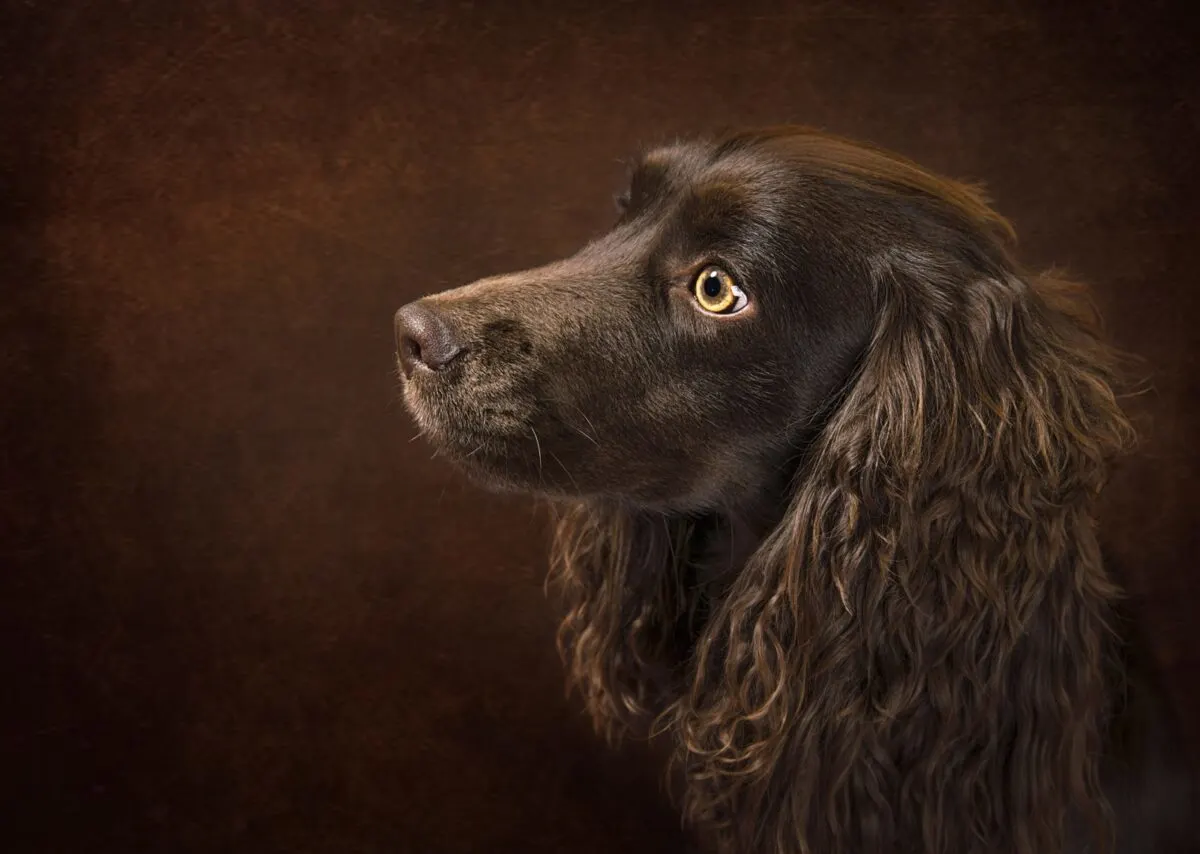In this post we’ll be getting to know the dog who is an equally good hunter and therapy-dog: the Boykin Spaniel.
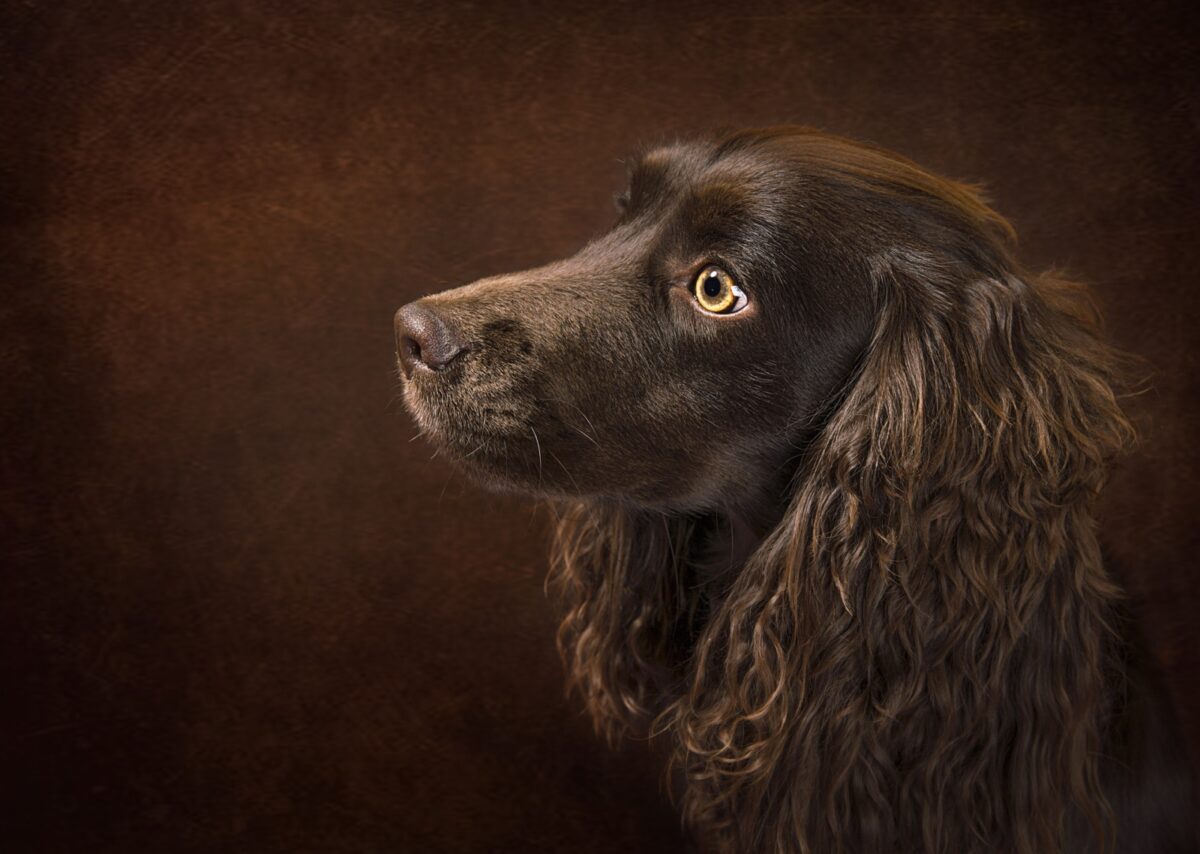
Dogs are domesticated mammals and subspecies of the Gray Wolf and have been pets for thousands of years, known for their loyalty and strong bond with humans. They are highly trainable and can learn various tasks such as hunting, herding, protection, assisting people with disabilities, and providing emotional support.
Dogs come in a wide variety of breeds, each with its unique appearance, temperament, and set of skills. These loyal companions are also known for their unique ability to understand and communicate with humans through body language, vocalizations, and other forms of communication.
The Boykin Spaniel is a small breed of dog that developed in the United States in the early 20th century. Also known as the “Liver Brown Spaniel,” the Boykin Spaniel was initially bred to be a hunting companion. Breeders intended them to hunt wild turkeys and ducks in the swamps and marshes of South Carolina. Today, the Boykin Spaniel is still primarily used as a hunting dog. At the same time, it is also a popular pet and therapy dog.
Dog breeding
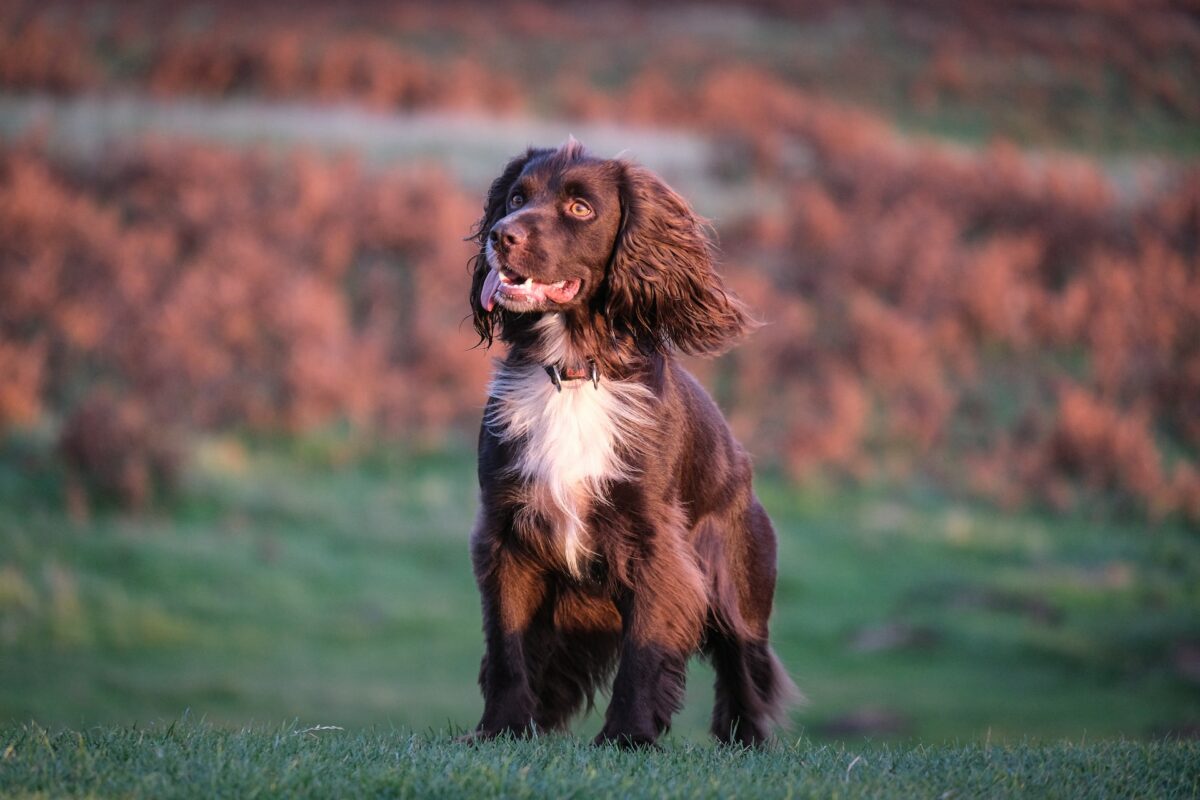
Dog breeding is the practice of selectively mating domestic dogs to produce offspring with desirable characteristics. These characteristics can include physical traits such as size, coat type, and color, as well as behavioral traits such as trainability and temperament.
Professional dog breeders, often members of a breed club, typically follow a specific breeding standard for their chosen breed, which outlines the ideal characteristics for that breed. They usually know about genetics, inherited diseases, and the best breeding practices.
One of the most important aspects of dog breeding is health testing. It involves testing dogs for inherited health conditions that can pass on to their offspring. This is critical to help prevent the spread of diseases within a breeding population.
However, the breeding of dogs has some ethical concerns as well. Overbreeding, inbreeding, and poor breeding practices can ironically have the reverse effect. It may increase the risk of genetic diseases and behavioral issues in puppies. Plus, it contributes to the problem of animal overpopulation, which can result in many dogs ending up in shelters or rescue centers.
Origin
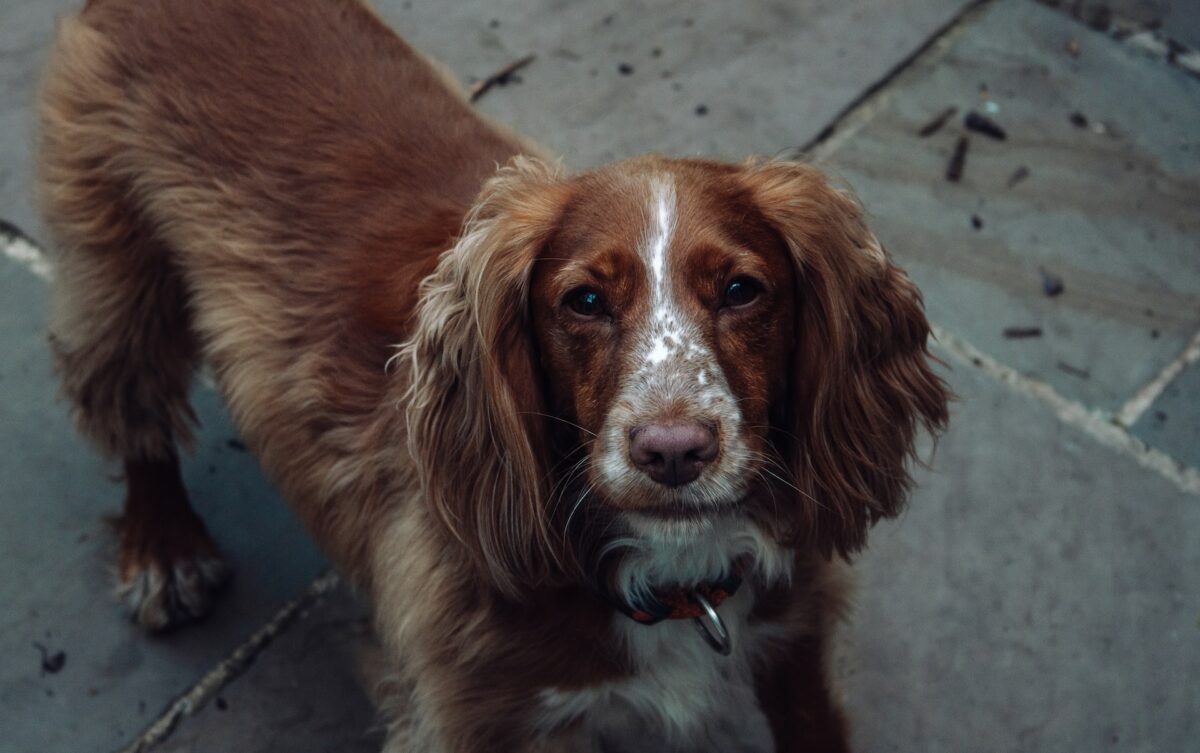
The origins of the Boykin Spaniel come from a small brown spaniel named “Dumpy.” He wandered the streets of Spartanburg, South Carolina, in the early 1900s. A local man named Luther Whitney Boykin, an avid hunter, and sportsman, took Dumpy. Boykin recognized Dumpy’s potential as a hunting companion and began breeding him with other small spaniels. Eventually, it resulted in the development of the Boykin Spaniel breed.
These small, sturdy, and energetic dogs were well-suited for hunting turkeys and ducks in the swamps and marshes of South Carolina, where Boykin hunted. People then refined the breed over the years to create the breed standard known today. The Boykin Spaniel Society of America (BSSA) formed in 1977 to promote, protect and preserve the breed.
Appearance
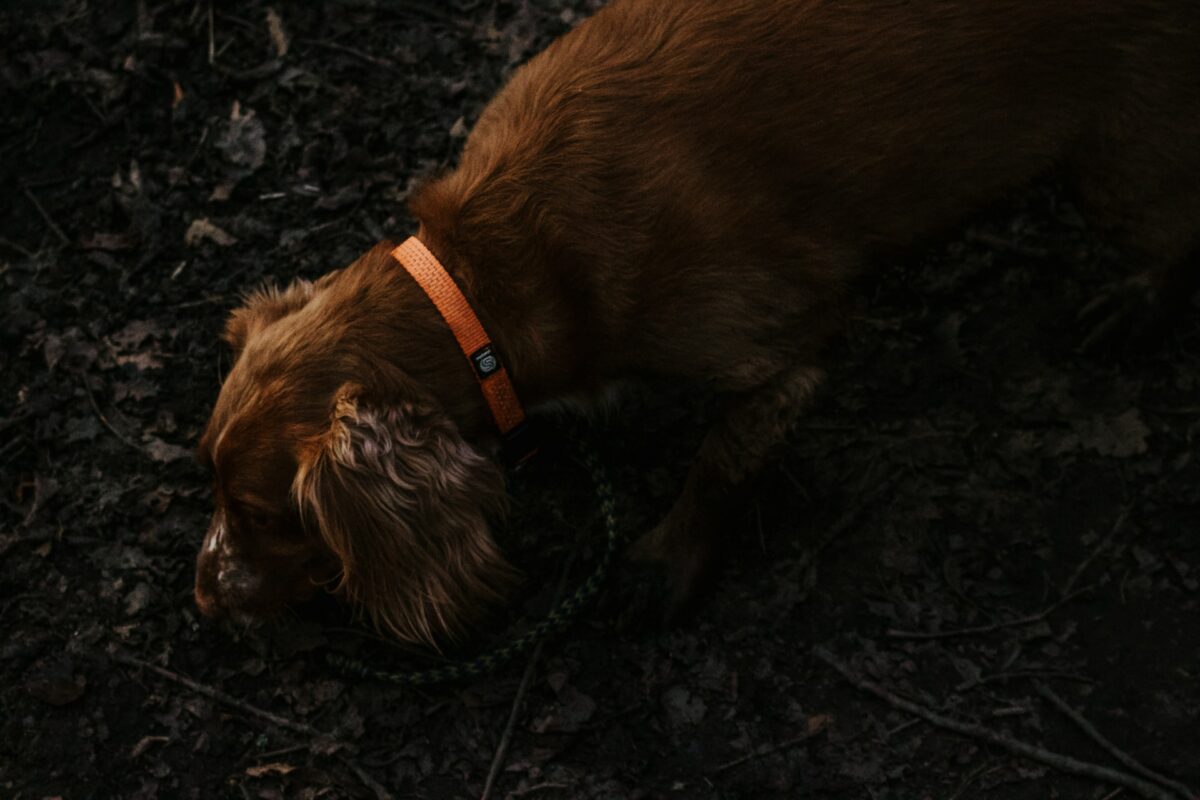
The Boykin Spaniel is a small to medium-sized dog breed known for its distinctive appearance. Their weight is typically between 30 and 40 pounds for males and 25 and 35 pounds for females. They have a wavy or curly coat, naturally chocolate brown, though some can also be black or dark chocolate brown. Their fur is thick and waterproof, which helps protect them when hunting in wet and marshy environments.
They have medium-length, floppy ears and curls on their legs and chest, which gives them a distinctive look. Their eyes are large and expressive, and they have friendly facial expressions. They also have strong and sturdy bodies, which give them a solid and athletic look. As a rule, they have a docked tail following the breed standards. Their short tail gives them a distinct look compared to other spaniels.
Boykin Spaniels have two coats. The undercoat is short and dense, and the outer coat is medium in length. Overall, the Boykin Spaniel’s coat can be flat or slightly wavy, brown or liver in color, and have tiny white patches on the chest and toes. The Boykin Spaniel sheds an average amount, so it needs to be brushed three to four times per week.
Behavior
The Boykin Spaniel is known for its friendly and outgoing personality. They are highly energetic and enthusiastic dogs that thrive on human interaction and companionship. These dogs are highly trainable and excel in various activities such as hunting, agility, obedience, and therapy work. They are also known for their strong desire to please, so they are easy to train and eager to learn new things.
With their human families, they are playful and affectionate and enjoy spending time with their owners, whether going for a walk, playing in the yard, or cuddling on the couch. They are also good with children and other pets, making them an ideal choice for families. However, they require regular exercise and mental stimulation to stay healthy and happy. If they receive insufficient stimulation, they become destructive. Because they have a strong hunting instinct, they may need to be trained not to chase smaller animals.
Habitat
Boykin Spaniels are adaptable to various habitats. However, they thrive in warm, humid environments such as those found in the American Southeast. Boykins are strong swimmers and are well-suited for hunting in marshy or swampy areas. As a companion dog, Boykins is well-suited to life in different environments, including suburban, urban, and rural settings, as long as they receive their necessities.
Health Problems
Although the Boykin Spaniel is a generally healthy breed, it does experience some common illnesses. Hip dysplasia is one of the most typical medical conditions and can result in lameness. Ear infections and eye issues like cataracts are also common in this breed. Cushing’s disease and hypothyroidism are also known to affect this breed, and skin and coat issues may appear, which may be linked to thyroid or endocrine disorders.
Life Span
The lifespan of a Boykin Spaniel is typically around 12 to 15 years.
Population
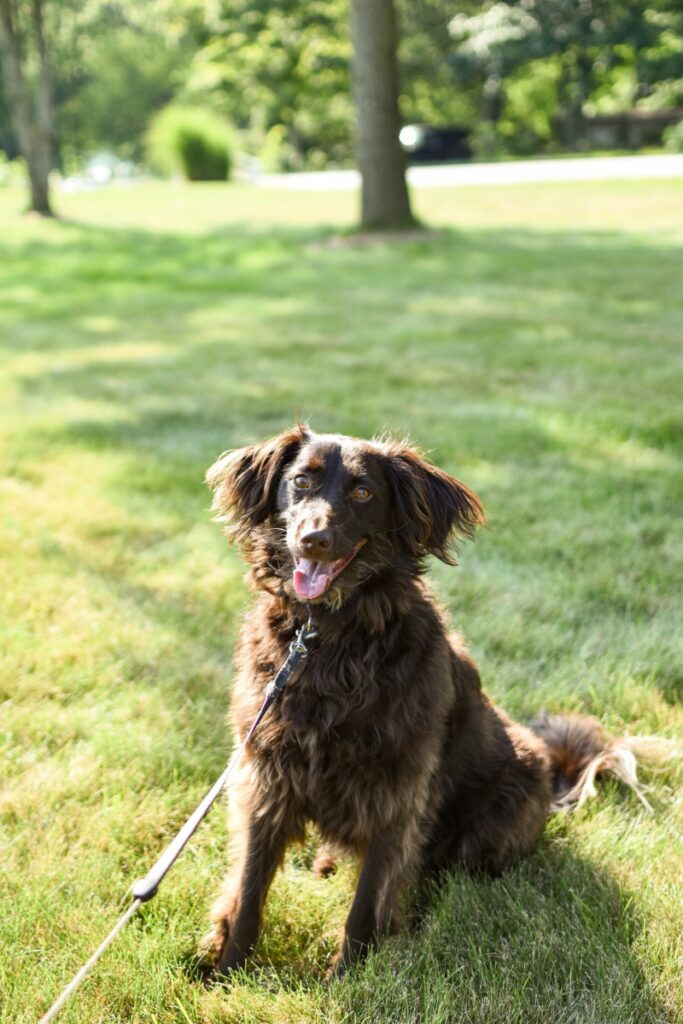
The population of Boykin Spaniels is relatively small compared to some other breeds. It was developed in South Carolina in the early 20th century and is still a rare breed today. The Boykin Spaniel Society was established in 1977 to preserve the breed, and they have worked to increase the breed’s popularity and population. However, it is uncertain how many Boykin spaniels are currently present worldwide. Still, in the US, it’s considered a rare breed.
Hunting Abilities
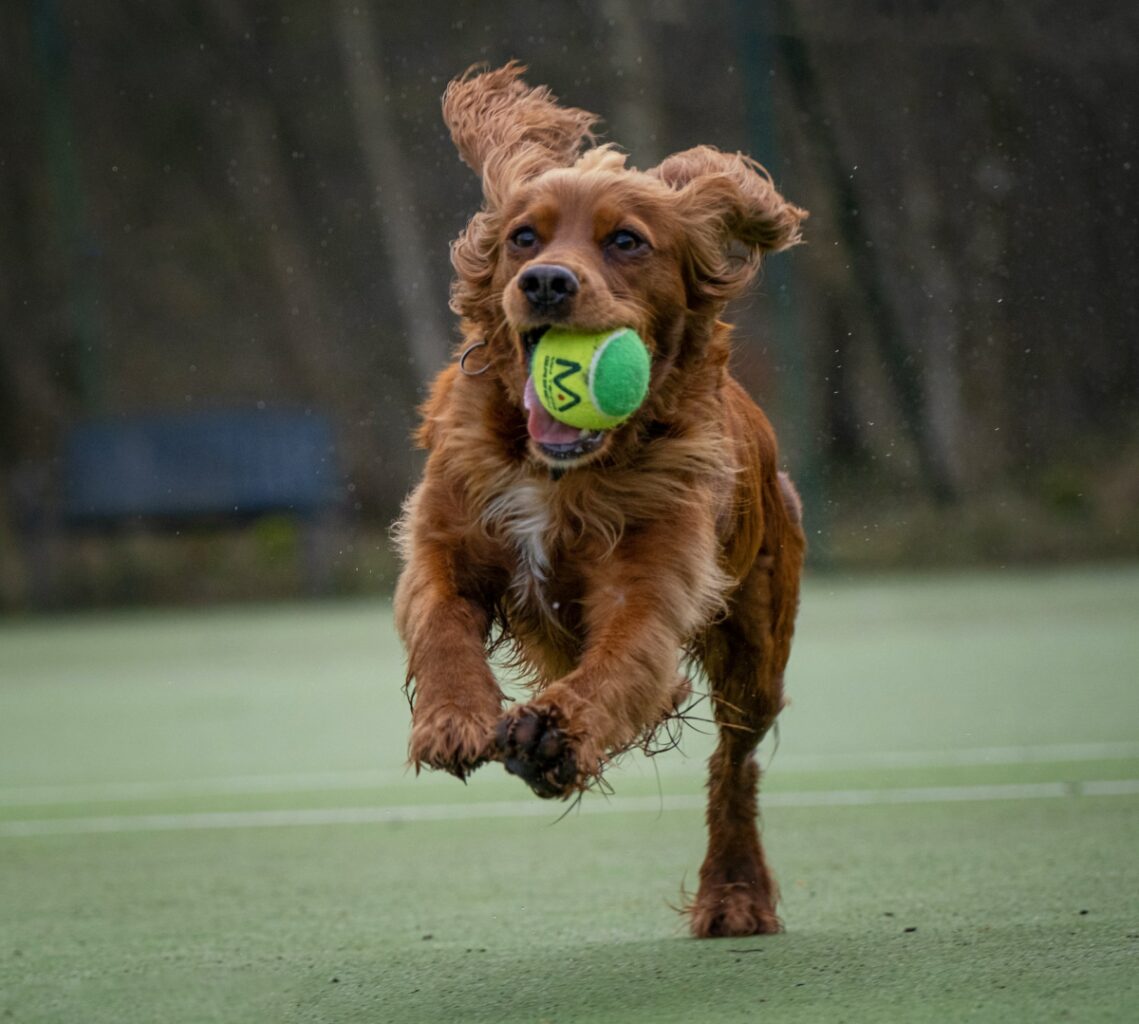
Boykin Spaniels are known for their hunting abilities, and people initially started breeding them to be hunting companions. Their strong instincts and natural abilities make them well-suited for hunting in the swamps and marshes of South Carolina, where they originated. They are excellent swimmers and have a waterproof coat that helps them hunt in wet environments. Their sense of smell is highly developed, and they can locate and track games effectively. They are also known for their energy and endurance, enabling them to work for long periods in the field.
Boykin Spaniels are natural retrievers and have a strong retrieving instinct, which makes them well-suited for hunting tasks such as flushing out and retrieving game birds like wild turkeys and ducks. They have soft mouths, which allows them to retrieve the prey without damaging it. Boykin Spaniels are known for their versatility and can learn to hunt various types of prey, such as quail, grouse, pheasant, and even larger game, such as deer.
In addition to being natural hunters, Boykin spaniels are also highly trainable – meaning they can learn to hunt in various ways. For example, they can learn to hunt using a variety of commands such as “flush” and “retrieve” to indicate when they should flush out prey and when they should retrieve it. They can also learn to hunt in different terrain, including forests, swamps, and fields, making them an ideal hunting companion for various situations. Overall, Boykin Spaniels are excellent hunters.
Boykin Spaniels As Therapy Dogs
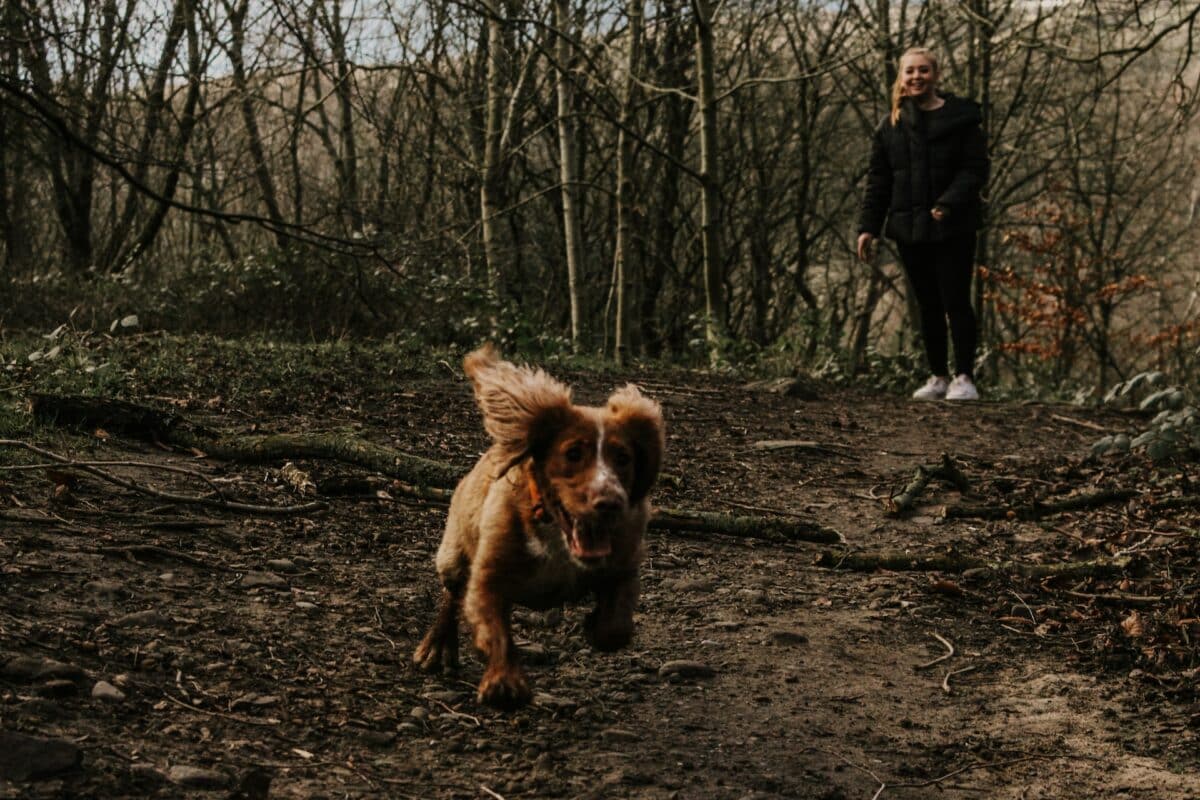
Boykin Spaniels have prominent personalities, which make them well-suited for therapy work. They are highly trainable and quickly adapt to new environments, which makes them ideal for visiting hospitals, nursing homes, and other facilities. Moreover, they are also known for their ability to sense when someone is feeling down and often go out of their way to comfort and cheer up their human companions. Their calm and friendly nature makes them excellent therapy dogs for people of all ages.
These dogs are also known for their high energy and enthusiasm – a great mood booster for people feeling down. Their playful and affectionate nature can help to reduce stress, anxiety, and depression, making them an effective form of therapy. They have a calming effect on people dealing with chronic conditions, mental health challenges, and traumatic events.
The Boykin Spaniel’s trainability and willingness to please make them ideal for therapy dog training programs. They can learn to perform specific tasks designed to help people with disabilities or other needs. These tasks can include fetching, carrying items, and providing emotional support.
It is important to note that, like any other therapy dog, Boykin Spaniels must be well-trained, well-behaved, and have the proper certification. Additionally, because therapy work can be demanding, it’s essential to ensure that the dog’s physical and mental well-being is being taken care of. Hardworking dogs need adequate rest and playtime.
Diet
Boykin Spaniels generally require a diet high in protein and essential nutrients to support their energetic and active lifestyle. They are prone to being overweight, so it’s necessary to monitor their weight and adjust their diet accordingly.
A dog needs a high-quality, species-appropriate diet with a balanced mix of protein, carbohydrates, fats, vitamins, and minerals. Commercial dog food or homemade meals fulfill these requirements. If choosing a commercial diet, it is best to choose a premium brand that uses high-quality ingredients. Avoid those which include fillers, by-products, and artificial preservatives.
When feeding your Boykin Spaniel a homemade diet, it is essential to include a balance. Incorporate protein sources, such as lean meats and fish, complex carbohydrates, such as brown rice, and healthy fats, such as olive oil. Their diet can also include vegetables and fruits in small amounts as long as they are safe for dogs to consume.
Boykin Spaniels are known to have food allergies, so it is vital to keep an eye on any signs of food intolerance and adjust the diet accordingly. It’s best to have a vet’s advice or consult with a canine nutritionist for a tailored diet for your specific dog, especially if there is any medical condition or allergies.
You must also provide fresh and clean water. Monitor your Boykin Spaniel’s weight regularly to ensure that they maintain a healthy body. Remember that dogs have different nutritional needs, which depend on their age, activity level, size, and body condition. This means that your doggo’s diet will change throughout their lives.
Reproduction
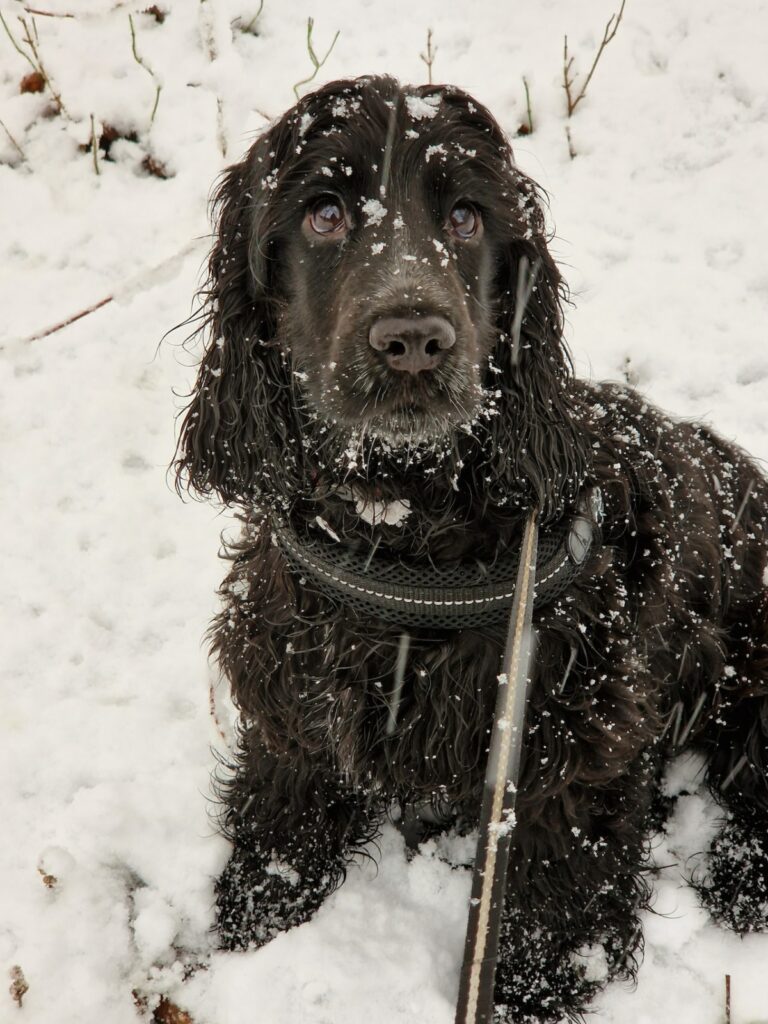
The Boykin Spaniel is relatively healthy, but like all breeds, they are prone to specific health issues. It’s essential to be aware of these potential issues and have a plan to address them should they arise. An aspect that we should consider is their reproduction process.
When it comes to reproduction, the Boykin Spaniel generally has a heat cycle that occurs twice a year. The most active cycles occur in the spring and fall. The heat cycle typically lasts about three weeks; during this time, the female Boykin Spaniel will be receptive to mating.
Mating between two Boykin Spaniels is typically uneventful and without complications. The gestation period for the breed is around 63 days, and litters can range from 4 to 8 puppies.
It’s essential to have a proper breeding plan in place. Make sure that the breeding pair is in good health, clear of any genetic or hereditary conditions, and meets the breed standards of the Boykin Spaniel. It’s better to work with a reputable breeder that follows good breeding practices and can provide health guarantees for the puppies.
Also, it’s important to note that, as the owner, you are responsible for the puppies’ health, socialization, and development. They will require a significant amount of time and financial investment.
The Care They Need
The Boykin Spaniel is a highly energetic breed that requires regular exercise and mental stimulation to stay healthy and happy. They have a strong hunting instinct, so daily walks or runs are essential for them to roam and explore. Furthermore, they enjoy playing fetch and swimming, so a spacious yard or access to a nearby park or lake would be ideal for this breed.
In terms of grooming, the Boykin Spaniel has a thick, wavy, or curly coat that requires regular brushing to keep it in good condition. They shed moderately, so regular brushing will help to remove loose hair and keep the coat clean and shiny.
The Boykin Spaniel is also a highly intelligent breed that thrives on training and learning new things. They are eager to please and respond well to positive reinforcement training methods. Basic obedience training and socialization are essential for this breed, as they can be strong-willed and independent.
Regular visits to the vet for check-ups and vaccinations are also crucial for the overall health and well-being of the Boykin Spaniel. It’s essential to know the common health issues and symptoms that affect the breed.
In summary, the Boykin Spaniel requires regular exercise, proper nutrition, regular grooming, positive training, socialization, and regular vet check-ups to thrive and maintain good health. With proper care, the Boykin Spaniel can be a loving and well-behaved companion for many years.
Conclusion
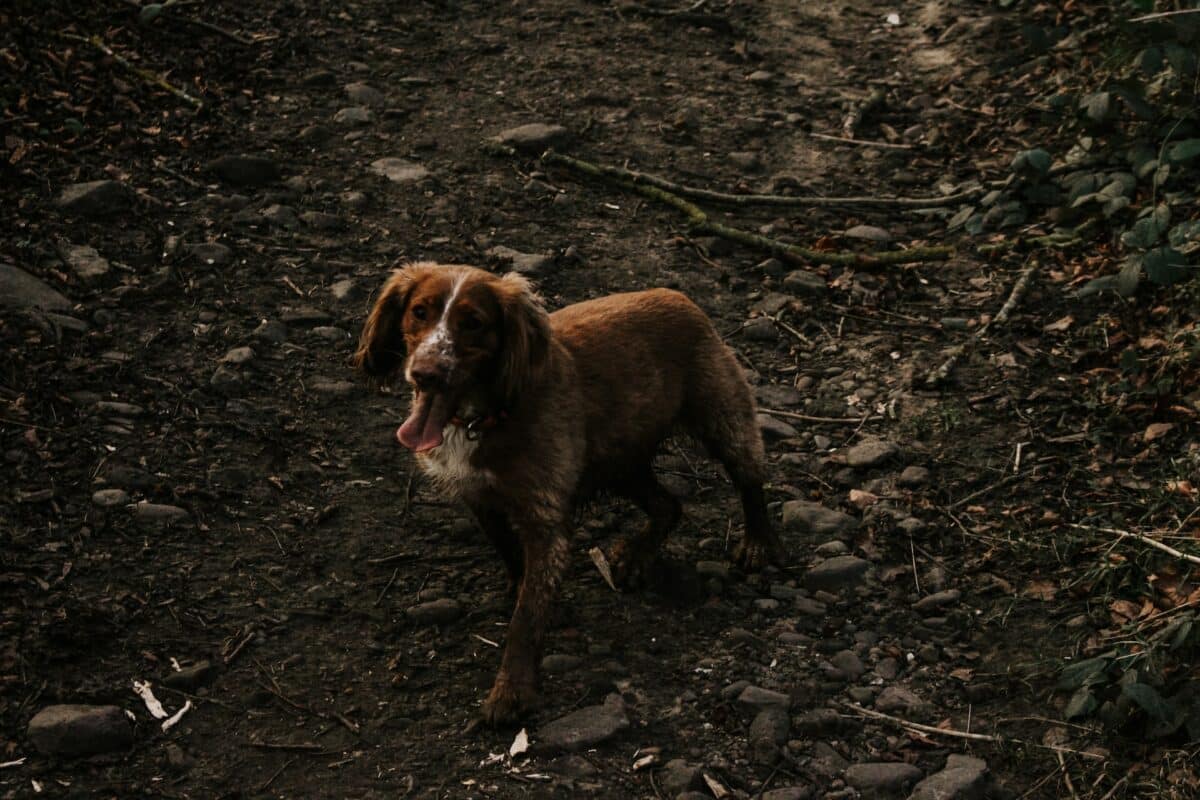
| Key Points |
| Dogs are descendants of wolves and are one of the earliest domesticated animals in the world. |
| The Boykin Spaniel is a small breed of dog that by people developed in the United States in the early 20th century. The Boykin Spaniel is still primarily used as a hunting dog but is also a popular companion animal and therapy dog. |
| Boykin Spaniels have prominent personalities, which make them well-suited for therapy work and hunting. They are highly trainable and quickly adapt to new environments. |
| Boykin Spaniels generally require a diet high in protein and essential nutrients to support their energetic and active lifestyle. They are prone to being overweight, so it’s necessary to monitor their weight and adjust their diet accordingly |
| The Boykin Spaniel is also a highly intelligent breed that thrives on training and learning new things. They are eager to please and respond well to positive reinforcement training methods. Basic obedience training and socialization are essential for this breed, as they can be strong-willed and independent. |
The Boykin Spaniel breed is considered rare but has been steadily gaining popularity due to its excellent temperament and versatility. Overall, the Boykin Spaniel is a wonderful, beloved breed with a friendly and outgoing personality. They make excellent hunting companions, therapy dogs, and family pets.
Thank you for reading this article! Perhaps the Boykin Spaniel doesn’t quite fit your needs? Keep browsing the many, many dog breeds out there by reading about the Chiweenie or the Neapolitan Mastiff.
Join our Forum for free today!


